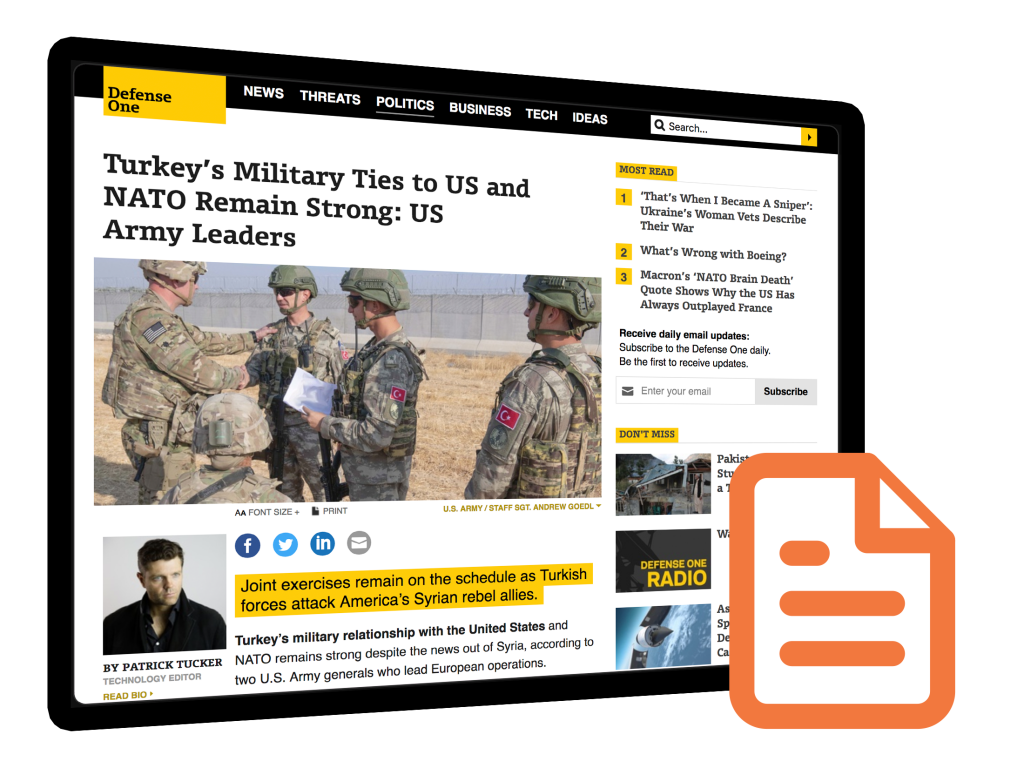“A lot of what you hear in the context of the NATO conversation is this question about core values…the question of democracy and freedom, the rule of law, and human rights that are fundamental to alliance. And when you see those degrade, that opens the door to Russian influence,” said Speranza, deputy director of the Transatlantic Security Initiative at the Council’s Scowcroft Center for Strategy and Security. Those problems were compounded when the Turks bought an S-400 anti-aircraft radar and missile battery from Russia, and did so against repeated warnings from the U.S. and other NATO partners. They took possession of it in July, a move that got them kicked out of the F-35 program. “I think that the S-400 program and the exit from the F-35 program is going to be a blow to [NATO] interoperability, but that doesn’t change the fact that it’s in our interest to continue working through these issues. At the end of the day, it’s about the reliability of an ally that is seen as a key part of the alliance,” said Speranza.
Lauren Speranza, Deputy Director, Transatlantic Security Initiative
